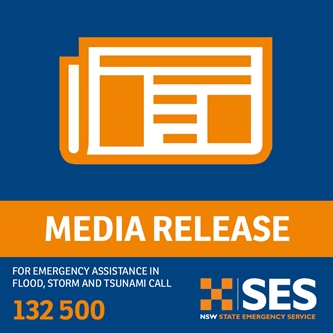Risk management, large crowds, children, alcohol and weather impacts are just some of the elements Townsville Station Officer in Charge Dean Cavanagh and his team must consider when events like the Rugby Championship and State of Origin come to town.
Acting Inspector Cavanagh takes us behind the scenes of what policing a major event is like in our regional city.
What goes into policing a major event in Townsville?
We recognise the importance of major events to our region, a day out with family and friends is what North Queenslanders enjoy so much.
Police have the responsibility to ensure the safety of the community, especially at events where there is a mass gathering of people.
The aim is to ensure everyone attending the event is safe… there is a fine balance to ensuring someone’s safety and minimising the security so people can fully enjoy the event.
We understand that people are there to have fun, and not be heavily policed, but we need to make sure we have every required capability ready to respond should the need arise.
Ultimately, we want to plan for every variable, and have a response ready, but at the same time, patrons are not impacted by police presence.
How do you balance the police resources for events and provide an adequate response to core business/ business as usual?
Most major events are staffed through a ‘special services’ system where the event organiser pays for policing resources.
This ensures adequate resources are available to manage events and our usual core duties are not affected.
Staffing numbers are determined through a mix of experience, software systems and intelligence-driven risk management.
Our first response capability is not impacted by policing major events as the special services are additional resources rostered on.

How important are relationships with partners and stakeholders?
The success of every event is due to good planning and excellent relationships and networks.
Every major event is delivered through a very experienced events planning group.
Behind every public event sits an engine room of government and non-government organisational representatives who each bring something different to the table.
We all work exceptionally well together to address risks and to make sure we all have adequate resources.
We work extremely closely with the Townsville City Council in the events space. They place a priority on community safety and are very experienced organising large-scale events in a short timeframe.
Most of these events have been held in the Queensland Country Bank Stadium, is planning easier when you have so much knowledge of the venue?
Working with Stadiums Queensland for most of our major events has made life very easy, they are an exceptionally experienced team who understand the importance of balancing community safety with patron enjoyment.
We run three different control and command rooms for most major events at the QCB Stadium which allows us to cater for any conceivable scenario. One of these is off-site which allows for distal command should a major incident occur.
We also conduct joint agency exercises which allow us to practice our planning of critical events, including full scale operational exercises that are formally evaluated. Lessons learnt are then considered and procedures adopted accordingly.
How do police manage a major event like the Rugby Championship, State of Origin, Townsville 500 Supercars?
A Joint Command Centre is usually established for major events with representatives from all organisations or agencies cohabitating in a command cell and working together.
This minimises delays in decision making and increases cross agency communication.
It is important for all agencies to concentrate on their area of responsibility and manage their own risks based on expertise, but also work together to focus on the job at hand.
We also work within the emergency response plan for the specific location.
What goes into the planning?
Depending on the size of the event, we have a scalable working group who come together to plan the police response. The size of the team can range from four to 12 people from various sections within QPS, including intelligence and counter terrorism who bring specific knowledge and experience to the team.
Generally planning starts months out from any event, depending on the size.
QPS will seek input from a variety of internal sections including intelligence, security and counter terrorism, events planning group and allocated commanders.
Intelligence gaps and risks are identified and addressed.
Multi agency planning is then established to ensure all factors are considered and resources available.
Good systems are essential at events, when you have 30,000 people converge on an area, it can sometimes look like mayhem, but with good systems in place, it can all be controlled.
What do you have to consider when planning a major event? What would people be surprised to know?
Every contingency is planned for, from a lost wallet to a terrorism event.
Different legislation can sometimes be used at events, which means staff also need to be educated prior to the event.
Policing responses to events are scalable and based more on identified risk than simply crowd numbers.
Often the crowd wouldn’t realise what specialist capabilities we deploy to events as they are not visible, from specialist response officers, bomb technicians, drones and intelligence officers.
Mass evacuation, mass casualty and emergency personal access into the event space are all factors that make up the planning.
How do police manage thousand people?
On event day, police and other agencies monitor an extensive network of cameras at the stadium or venue and in the surrounding public spaces.
This allows us to identify potential threats or hazards and respond swiftly by pre-deploying crews to avoid the incident escalating.
We are very lucky in North Queensland because most of our crowds are families and friends who are there to have fun, and not cause problems.
It is usually a very happy and friendly environment, where police just have to focus on the small minority.
It is generally an enjoyable policing atmosphere, with police happy to interact with the crowd and celebrate a Cowboys win.
We also need to predict crowd movements to and from the event, ensuring safe passage and hostile vehicle mitigation in every area.
How did police manage State of Origin, with a nine-day turnaround?
The State of Origin was an amazing event to be involved in, both the planning and managing the policing response.
We had to consider the policing response for the stadium, multiple pop-up celebration sites, Flinders Street and our usual policing duties throughout Townsville District.
It was a very short lead time and was only made possible due to the positive attitude of all the agencies involved.
Everyone stepped up and made sure the job was done, decisions were made quickly, and the result was something Townsville should be proud of…despite the final score.
How has COVID impacted on event planning?
COVID restrictions certainly have added another layer of complexity to events.
The fluid nature of the restrictions kept all organisers on alert as COVID directions often changed at the last minute.







